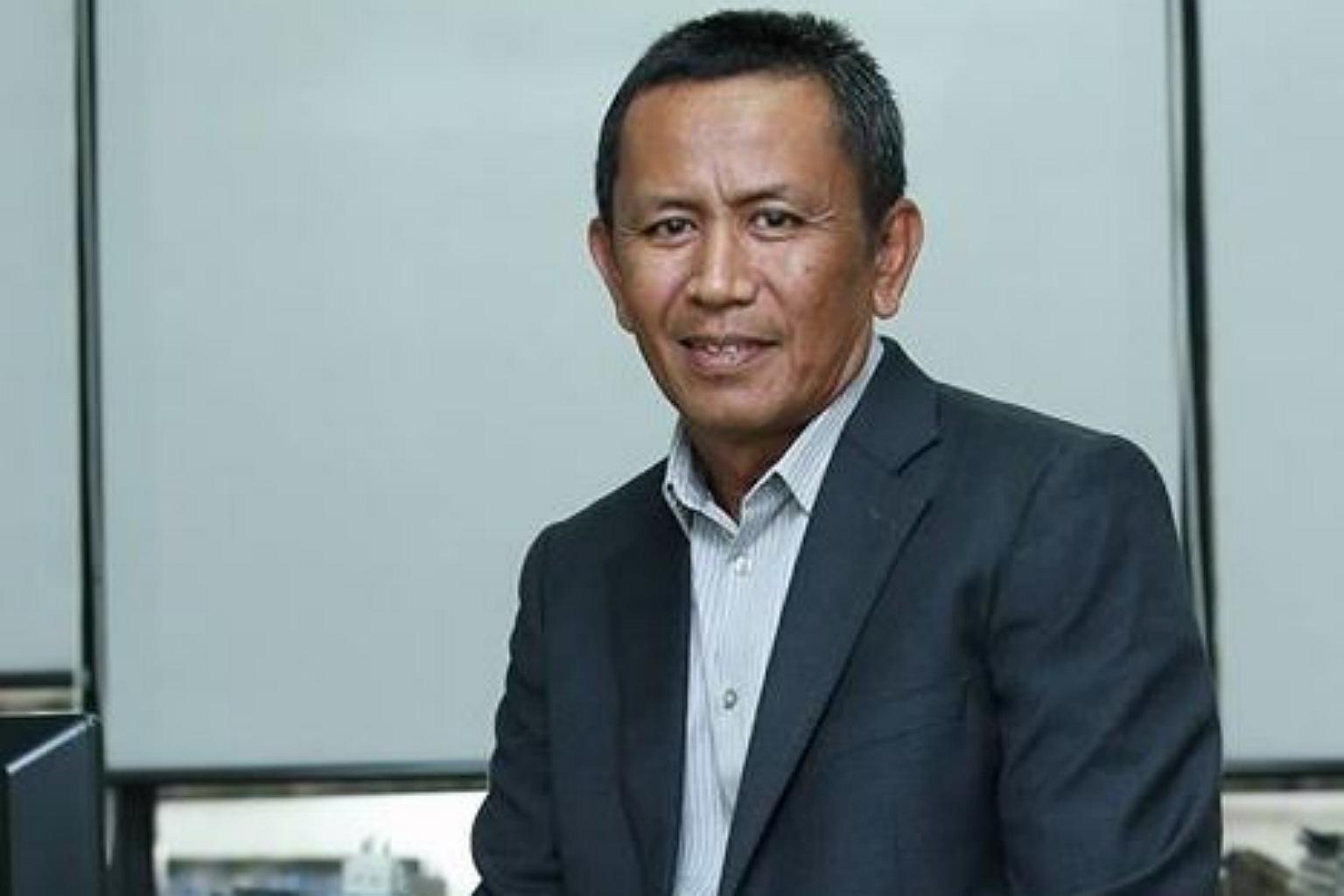Former senior editor at Malaysia's New Straits Times says he quit after soul-searching over 1MDB scandal
Sign up now: Get insights on the biggest stories in Malaysia

Former group editor at New Straits Times, Malaysia, Mr Mustapha Kamil.
PHOTO: MUSTAPHA KAMIL / FACEBOOK
Lee Seok Hwai
Follow topic:
The former group editor at Malaysia's New Straits Times (NST), which is controlled by Prime Minister Najib Razak's ruling party Umno, has openly raised questions about scandal-hit state investor 1MDB, saying that it has not achieved its mission and has established partnerships with "some shady characters".
Mr Mustapha Kamil also said he quit the newspaper in April as a result of soul-searching after New York-based Wall Street Journal broke the 1MDB scandal last year.
"I had weighed the situation for as long as I could but when an American newspaper, headquartered somewhere in Lower Manhattan in New York, wrote a story that got nominated for the coveted Pullitzer Prize, about an issue that happened right under my nose, I began to seriously search my conscience and asked myself why was I in journalism in the first place," said Mr Mutapha in an open letter posted on his Facebook account on May 31.
The letter went up on May 31 and has been shared 626 times and liked 286 times as of Tuesday (June 7) morning. It has also been reported by WSJ as well as Malaysia's non-traditional media outlets like Malaysiakini.
WSJ first published allegations last July that US$681 million (S$925 million) from 1MDB, which has racked up debts of US$11 billion since being set up by Mr Najib in 2009, was transferred to his bank account in 2013. Several more allegations of impropriety followed and the 1MDB money trail is now being investigated in at least seven other jurisdictions including Switzerland, the United States and Singapore.
Both 1MDB and Mr Najib has denied any wrongdoing, with the premier saying that the money he received in his account was a political donation from Saudi Arabia, and most of it was returned. A Malaysian parliamentary committee has identified at least US$4.2 billion of irregular transactions by the state fund, and recommended the advisory board headed by Mr Najib be disbanded.
Mr Mustapha questioned 1MDB's integrity in another posting on his Facebook on May 31.
"As a working journalist (well, at least until last week)... I have always been sceptical over mission statements of any institution," he said. "Take these statements from 1MDB for instance: 1) 1MDB said its vision was to act as 'A strategic enabler for new ideas and sources of growth'. Well... where are the ideas and where are the new sources of growth please.
"Then it said that its mission was also to 'drive sustainable economic development by forging strategic global partnerships and promoting FDIs -- OK, it has established partnerships with some shady characters, although those operating globally lah. And the only FDIs coming in seems to be from China who saved its neck by buying Edra Energy, allowing 1MDB to pay part of its debts. And forget about driving sustainable economic development. 1MDB could not even sustain itself.
"Then it said that its mission was also to 'drive sustainable economic development by forging strategic global partnerships and promoting FDIs -- OK, it has established partnerships with some shady characters, although those operating globally lah. And the only FDIs coming in seems to be from China who saved its neck by buying Edra Energy, allowing 1MDB to pay part of its debts. And forget about driving sustainable economic development. 1MDB could not even sustain itself.
"And then, according to my notebook (I still keep some with me by the way), Prime Minister Najib in January 2010 told 1MDB officials to 'Be bold and daring... to break new ground and do things differently'. Oh yes indeed, this 1MDB has turned out to be one hell of a bold institution and one which does things very differently, among others by borrowing 42 billion against a capital of 1 million. You can't get any bolder than that."
Mr Lim Guan Eng, secretary-general of the opposition Democratic Action Party, hailed Mr Mustapha as a journalist who "upholds journalism ethics", Malaysiakini reported on Monday.
Mr Lim said Mustapha's decision as a "major sacrifice, but a noble move that should be respected".
"Mustapha resigned because he was not allowed to speak the truth," Mr Lim, who is also Penang chief minister, said at a press conference according to Malaysiakini.
In an interview with WSJ, Mr Mustapha said Mr Najib's government has banned newspapers it controls - which include the New Straits Times and the larger-circulation Malay-language Berita Harian and Utusan Malaysia newspapers - from covering the 1MDB story.
In an interview with WSJ, Mr Mustapha said Mr Najib's government has banned newspapers it controls - which include the New Straits Times and the larger-circulation Malay-language Berita Harian and Utusan Malaysia newspapers - from covering the 1MDB story.
"There are specific instructions to use this or that story, and we're not allowed to question," he said. "Before 1MDB, there was more freedom for us to do our job."
Mr Najib and 1MDB did not respond to questions about whether the government pressured media over coverage of the scandal, WSJ said.
Mr Mustapha acknowledged in the interview that NST, which is controlled by Media Prima Bhd., a company owned by Mr Najib's ruling United Malays National Organisation, always faced some curbs on free expression.
Those limits, though, have narrowed considerably in the past year since Mr Najib began to fight allegations about taking money from 1MDB, he added.
"It was not this frequent and not this authoritarian," Mr Mustapha said of previous media controls.

